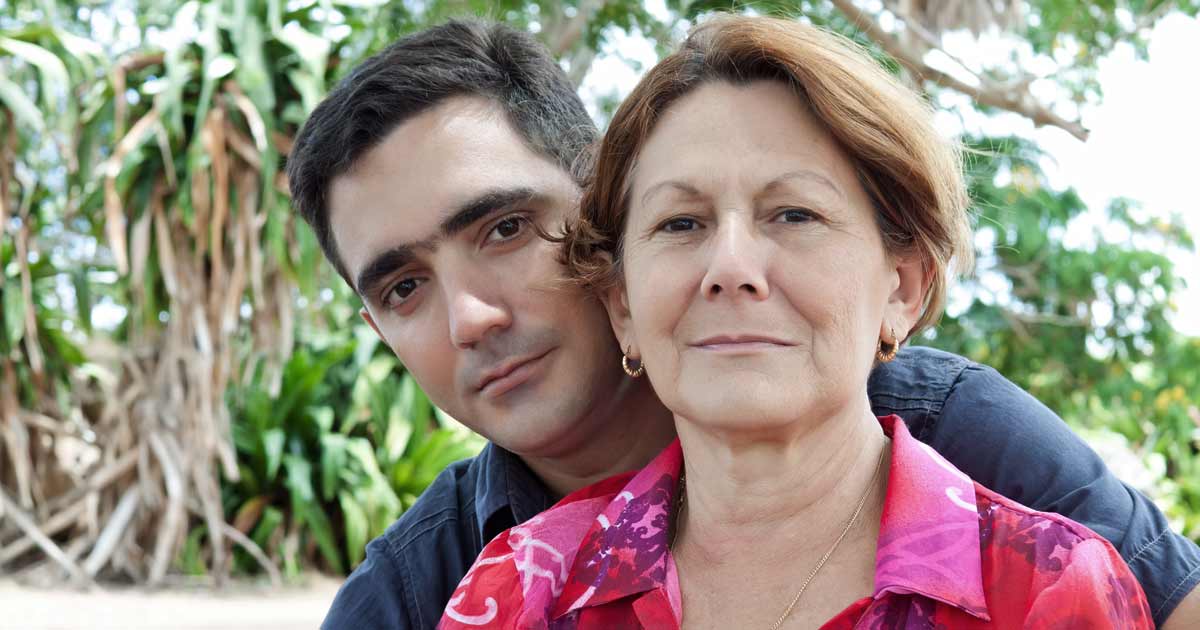Cognitive Behavioral Therapy for Schizophrenia
Cognitive behavioral therapy, also known as CBT, may be a treatment option for people with schizophrenia. CBT teaches a person to modify beliefs or behaviors that may be leading to negative emotions. The therapy has two main parts: a cognitive component, which helps a person to change his or her thinking about a situation, and a behavioral component, which helps a person to change his or her reactions.
Schedule an Appointment
Browse our specialists and get the care you need.
Find a Doctor & Schedule
Cognitive behavioral therapy is a short-term, problem-focused approach with the goal of teaching people who have schizophrenia a variety of coping skills to help them manage difficult situations. This type of therapy is typically given for one hour a week during the course of 12 to 16 weeks.
During cognitive behavioral therapy sessions, a person works with a therapist to learn how his or her thoughts, feelings, and behaviors influence each other. In order to change unwanted feelings or problematic behaviors, the therapist teaches strategies to modify negative thoughts and respond to them differently. The therapist teaches the person how to test the reality of his or her thoughts and perceptions, ignore any voices, and manage symptoms.
Cognitive behavioral therapy can also help people with schizophrenia to develop better social and problem-solving skills, reduce the severity of symptoms, and lower the risk of relapse, a period of time when schizophrenia symptoms return.
Schizophrenia is a complex mental health condition that can be treated with distinct types of therapy, each having its own unique benefits. While it cannot be cured, and we don’t have a fully comprehensive understanding of schizophrenia causes, several therapies for schizophrenia can significantly reduce symptom severity.
To treat schizophrenia, an integrated approach is generally recommended. Treatment plans usually involve a combination of treatment options like psychotherapy, antipsychotic medication, and emotional and family support. Keep in mind that early intervention is critical in determining how successful treatment will ultimately be, especially for potential schizophrenia in children and teens.
“The best treatments for schizophrenia are cognitive behavior therapy (CBT), psychotherapy, family therapy, psychosocial therapy, and group counseling.”
Talkspace therapist Reshawna Chapple, PhD, LCSW
Read on to learn more about the 8 different types of therapy that can help you manage schizophrenia and live a healthy, productive, rewarding life. With a dedication to your treatment plan, the right support system in place, and access to schizophrenia medication, you can effectively manage schizophrenia.
Psychotherapy
Psychotherapy has the potential to address some of the negative symptoms of schizophrenia that antipsychotic medication alone likely cannot.
“Psychotherapy is also referred to as talk therapy. It allows the client to talk through some of the stresses and emotions that they’re dealing with related to the diagnosis.”
Talkspace therapist Reshawna Chapple, PhD, LCSW
Psychotherapy can help you and your family navigate schizophrenia symptoms, so it doesn’t control your life. Several types of talk therapy can reduce and alleviate symptoms, allowing you to perform better in daily activities, develop meaningful, healthy relationships, and improve your overall quality of life.
1. Cognitive-behavioral therapy (CBT)
Cognitive-behavioral therapy (CBT) is effective for a broad range of psychological conditions, including anxiety disorders, relationship problems, drug or alcohol abuse, eating disorders, and mental health conditions like schizophrenia. This type of talk therapy helps people look at how they think and behave, identify areas that are problematic or unhealthy, and begin to change thoughts and actions into healthier responses.
CBT teaches you to see situations, thoughts, feelings, emotions, and actions individually, so you can discern the origin of unhealthy patterns. It also teaches coping skills and helps you set and achieve goals, both in therapy and in your day-to-day life.
“Cognitive behavior therapy (CBT) helps you change how you think and react to situations. It also teaches you to deal with negative feelings and behaviors by replacing them with more positive thoughts and behaviors. CBT can also help you learn to control emotions, solve problems, and understand others’ behavior.”
Talkspace therapist Reshawna Chapple, PhD, LCSW
2. Cognitive enhancement therapy (CET)
Cognitive enhancement therapy (CET), also known as cognitive remediation, is a system of cognitive training that’s helpful for some adults with schizophrenia or schizoaffective disorder. It’s a recovery-phase therapy used for people who have relatively stable symptoms, but who might lack certain vocational and social skills.
More specifically, CET focuses on improving memory, motivation, organization, social adjustment, and cognition. It’s also heavily focused on vocational, familial, and social functioning.
Psychosocial Therapy
Psychosocial therapies combine elements of psychotherapy, vocational training, and social training to educate, support, and guide people living with schizophrenia. It typically involves:
- Family education therapy
- Coordinated specialty care (CSC)
- Assertive community treatment (ACT)
- Social skills training
- Self-help groups
- Rehabilitation
Let’s examine each of these psychosocial schizophrenia therapies more closely.
3. Family education therapy
Family education therapy focuses on teaching a family unit how to work together whenever problems arise after diagnosing schizophrenia. Together, you and your family will learn to collectively discuss the problems at hand and determine the best solutions for everyone.
“Family therapy can help the diagnosed client and their family deal with stress related to the illness, learn to better manage emotional situation, learn to process emotions, and solve problems related to the illness and the family dynamics that the illness may cause.”
Talkspace therapist Reshawna Chapple, PhD, LCSW
4. Coordinated specialty care (CSC)
CSC is another recovery-phase treatment that helps people with schizophrenia via a team-based approach.
Multiple specialists collaborate with you to devise a personalized program that typically combines talk therapy, medication management and compliance, family education, vocational support, and ongoing case management.
5. Assertive community treatment (ACT)
Assertive community treatment (ACT) therapies for schizophrenia help someone follow treatment and reduce the risk of hospitalization. It’s a behaviorally-oriented subcategory of CBT that uses counter-conditioning and positive reinforcement to change how you respond to emotions, impulses, thoughts, and physical feelings (known as “inner experiences”).
This community-based treatment approach most often involves social workers, psychiatrists, physicians, nurses, therapists, and case workers. ACT teams provide multidisciplinary treatment that flexes with your needs, offering 24/7/365 support.
6. Social skills training
Social skills training involves a set of techniques that help someone with schizophrenia enhance their ability to have social interactions. By addressing specific skill insufficiencies, you’ll start to curtail those negative symptoms of schizophrenia and improve critical social functioning that can help you maintain healthy relationships and positive personal interactions.
Specific methods used might include role-playing, didactic instruction (teacher-directed instruction), modeling, supervised interactions, social problem-solving skills, and reinforcement techniques.
7. Self-help and group therapy
Group counseling can help people living with schizophrenia learn and improve their social skills. Self-help groups allow you to gain new insights into other schizophrenia therapies, helping you deal with deep feelings of isolation that are common with the condition.
Participation in self-help or therapy groups can allow you the space and opportunity to vent frustrations, challenges, and successes in a safe setting that feels comfortable and supportive. Family participation is typically encouraged, and it’s not uncommon for friendships to form amongst group members. Many people find that sharing similar mental health challenges and experiences can be a cathartic and healing experience.
Self-help group therapy can be effective in helping you improve work skills, social skills, treatment adherence, medication compliance, and interpersonal relationship skills.
8. Rehabilitation
Psychosocial rehabilitation therapy for schizophrenia encourages people to enhance their intellectual, emotional, and social skills so they can ultimately live happier lives. Rehabilitation programs encourage you to feel confident in your own ability to manage things on your own, with the least amount of assistance and intervention possible. You’ll be taught new coping skills so you can more successfully manage stressful events.
Rehabilitation treatment varies from person to person but typically includes individual and family counseling, independent living training, vocational training, medication management, job counseling, and emotional support.
Finding a Therapist for Schizophrenia
If you think you or a loved one may have schizophrenia and are looking for a therapist, consider reaching out to your primary care physician or health insurance provider. You might also ask for a referral from your workplace, family, school, friends, or even your church. It’s important to try and work with a therapist who specializes in different therapies for schizophrenia. It’s equally as important to find someone you feel comfortable opening up to, so asking for a personal referral can be a good way to start.
Remember, self-care is integral to schizophrenia treatment. Be sure to try to exercise regularly, eat a healthy diet, develop stress coping skills, and stay in contact with family and loved ones. Keeping yourself physically and mentally strong will help you better manage symptoms of schizophrenia.
Talkspace is an online therapy platform that can make getting help easier than ever. We offer convenient and effective therapy for schizophrenia, so you can begin a treatment program and start learning how to manage your condition as soon as possible. Find out how Talkspace is changing how people feel about therapy and changing the approach to online therapy.
Medically reviewed by
Ashley Ertel, LCSW, BCD
Ashley Ertel, LCSW, BCD
Reviewed On: June 27, 2022




